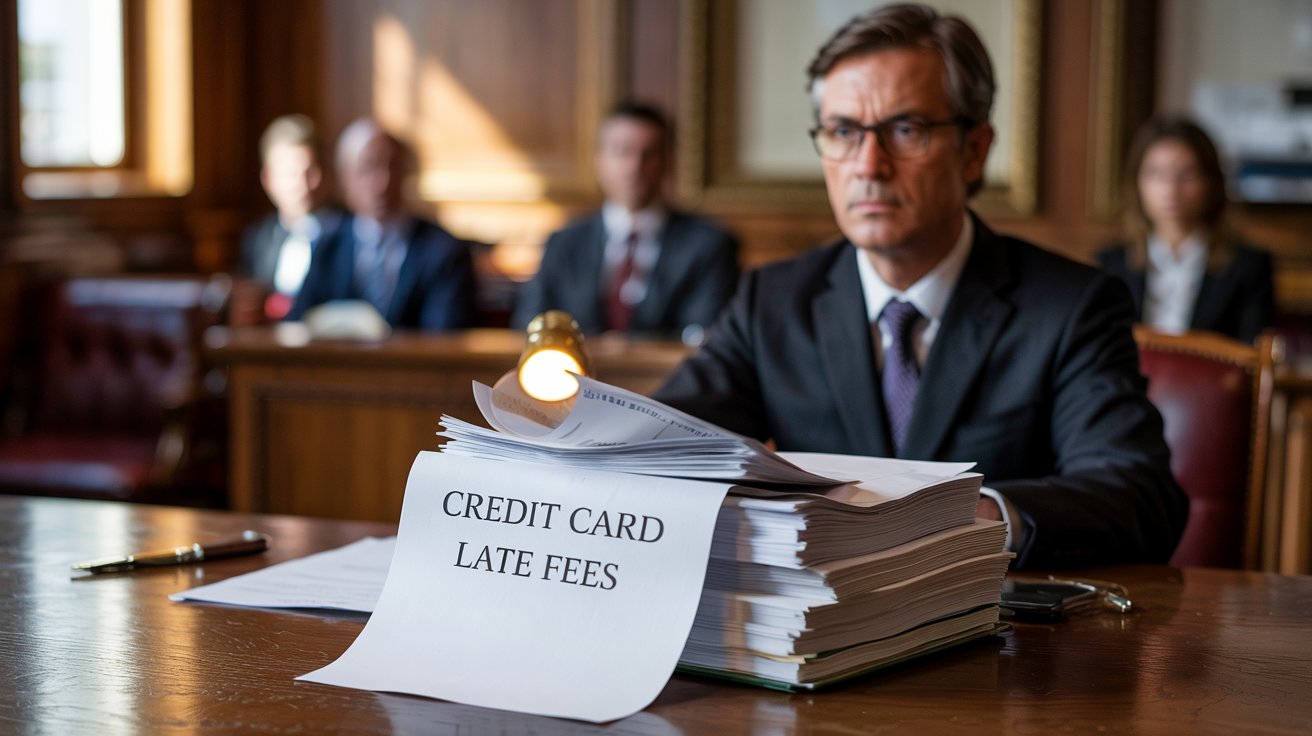Trump Moves to Kill Biden’s Credit Card Late Fee Rule — What It Means for Every American Wallet, as the administration takes legal steps to strike down one of Biden’s key consumer protection policies. This move could have a significant financial impact on millions of Americans who rely on credit cards.
Understanding the Biden-Era Late Fee Rule: Why It Was Introduced
This rule was introduced by the Consumer Financial Protection Bureau (CFPB) in 2024 to cap credit card late fees at $8. The purpose was to protect American consumers from what the bureau called “excessive and unnecessary penalties” charged by major banks and lenders.
What the Rule Did:
- Capped late fees at $8 unless a higher cost could be proven by the card issuer.
- Aimed to reduce consumer financial stress during inflation and debt surges.
- Estimated to save Americans $10 billion annually, according to CFPB projections.
This rule directly challenged financial institutions that previously charged up to $41 in late fees—fees that disproportionately affected low-income households.
Why the Trump Administration Wants It Gone
The Trump administration officially filed in Texas federal court to scrap the $8 cap, aligning with lobbying groups such as the U.S. Chamber of Commerce, who argue that:
- The rule exceeds the CFPB’s legal authority under the Credit CARD Act of 2009.
- It disrupts the business models of financial institutions.
- It could result in fewer credit card offers or higher interest rates as compensation.
Judge Mark Pittman, appointed by Trump, previously blocked the rule from being enforced, stating legal overreach concerns.
This is not just about policy—it’s a clash of ideologies: consumer protection vs free-market deregulation.
What This Means for the Average American: Key Impacts
If the rule is repealed, many Americans will once again face higher late payment penalties, adding financial pressure—especially on families who are already living paycheck to paycheck.
| Policy Status | Late Fee Limit | Average Annual Fee | Impact on Consumers |
|---|---|---|---|
| Biden Rule Active | $8 cap | ~$96 | More affordable, less burden |
| Rule Repealed | $30–$41 typical | $360–$492 | High burden, regressive cost |
More than 45% of credit card users occasionally miss payments due to timing or emergencies. Without this rule, those lapses could become extremely costly again.
Trump vs Biden Credit Card Late Fee Rule
Here’s a breakdown of the core conflict and consequences:
Credit Card Late Fee Rule
/ \
Biden Rule Trump Repeal
| |
$8 late fee cap — consumer savings Legal reversal sought
| |
Estimated $10B annual savings Backing from finance lobby
| |
Helps low-income users Possible return to $30–$41 fees
\ /
Consumer protection vs. Free market policy
What Comes Next in the Court and for Consumers
- The Texas federal court will soon decide whether the Biden-era rule stands or is struck down.
- If repealed, late fees will likely rise again, with no cap in place.
- The CFPB has said it will continue defending the regulation and fight legal opposition.
This case could influence the future of financial consumer protection in the U.S., especially if more Trump-era deregulations are revived.
Conclusion: Why This Rule Matters to Your Wallet
This isn’t just politics—this is your money. If Trump succeeds in removing the credit card late fee rule, many Americans could end up paying hundreds more each year in penalties. While banks argue it’s about protecting their business models, consumer advocates stress that families should not be punished for small delays in payments.
According to the Federal Reserve, U.S. credit card debt hit $1.3 trillion in Q1 2025, the highest ever recorded.
With this much at stake, the outcome of this court challenge could affect millions of Americans almost immediately.
[USnewsSphere.com / reu.]





